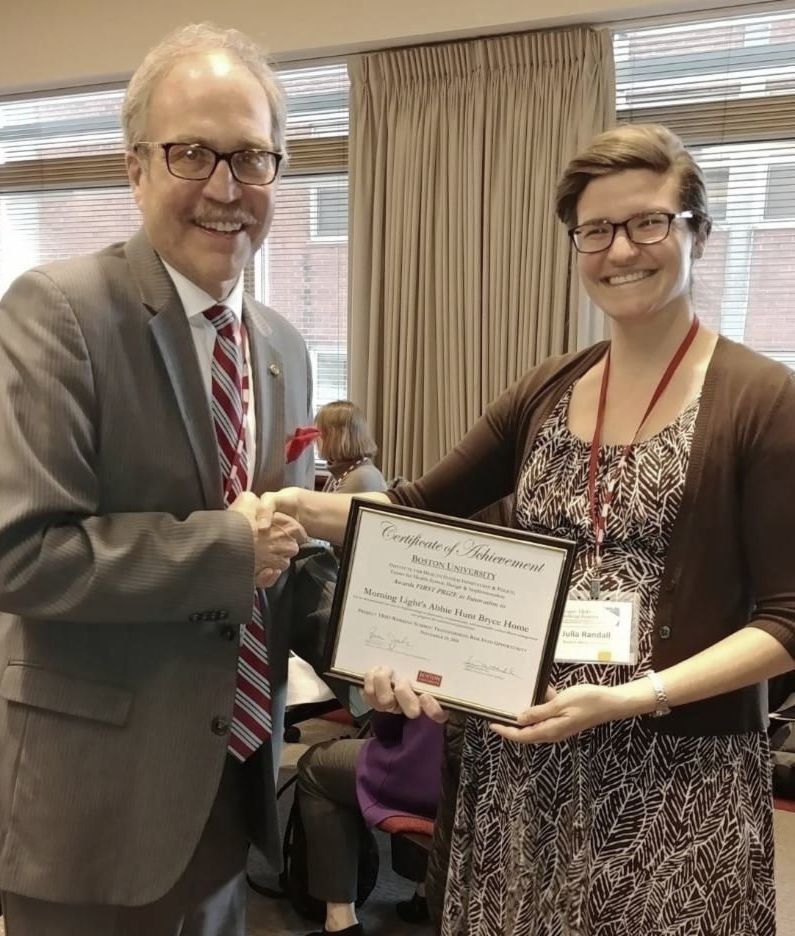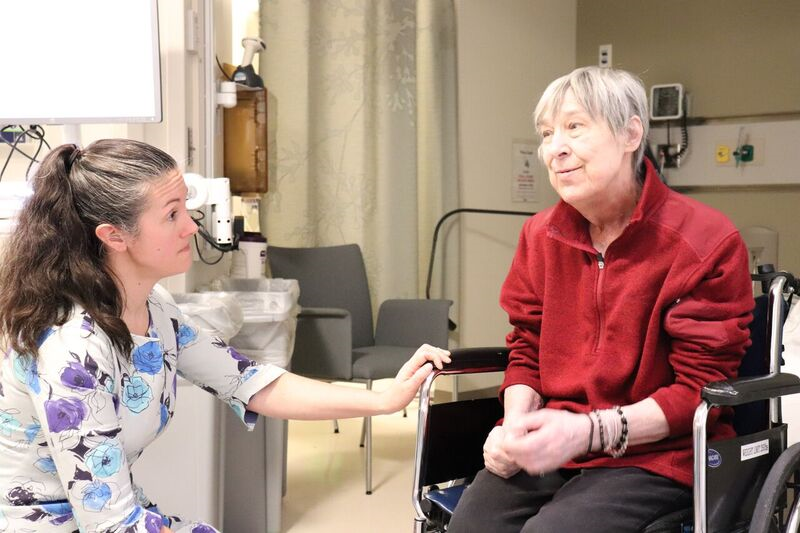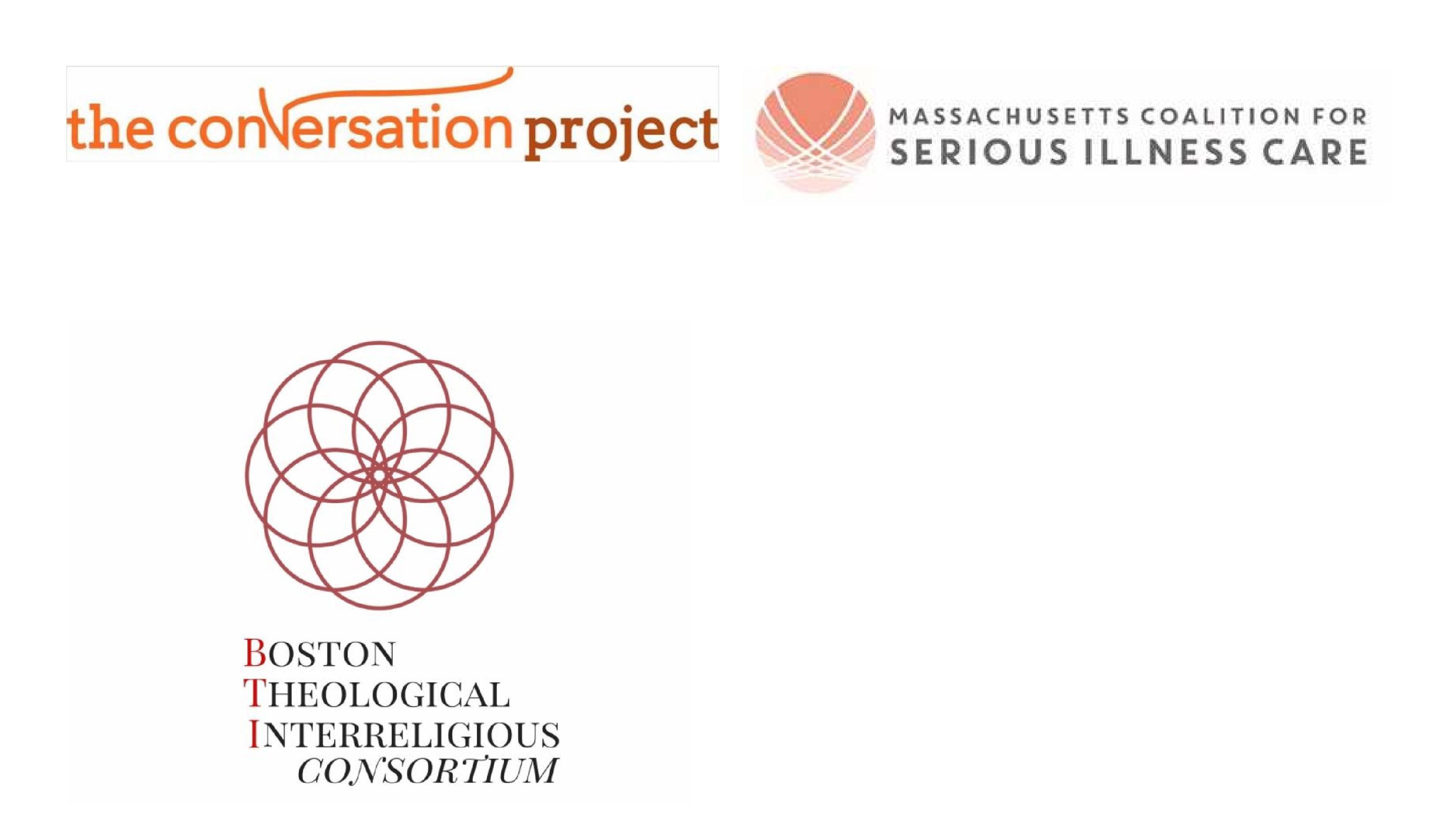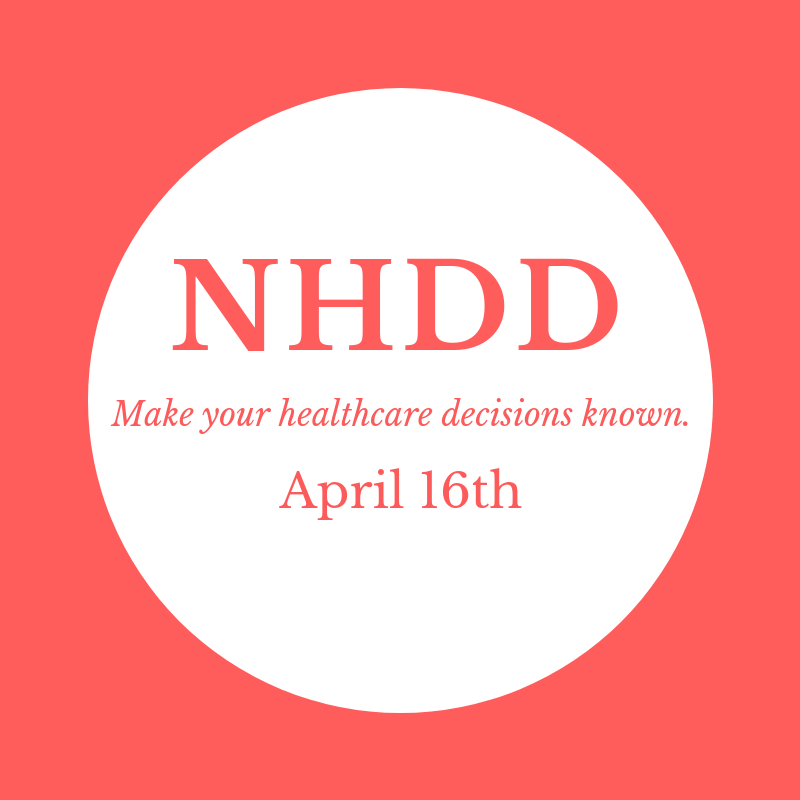January 2019 Newsletter

Publication Date: January 1, 2019
Recent TRIO Summit Focused on Care for Underserved

The first Project TRIO (Transforming Risk into Opportunity) working summit brought together a wide range of health and human service professionals committed to furthering the cause of redesigning palliative care for underserved populations. “It was great to see how much people care and want to collaborate,” says organizer Dr. Suzanne Mitchell, Associate Professor of Family Medicine at Boston University School of Medicine and the Director of Ambulatory Palliative Care at Boston Medical Center. “People walked away with new tools and had a great experience.” The Coalition was a sponsor of the day-long event, which was held last November at the Boston University Questrom School of Business.
The 73 people in attendance heard from keynote speaker Linda Briggs, co-creator of Respecting Choices about how her organization was able to adapt their protocol for advance care planning to meet the needs of diverse communities. Design thinking workshops were also held with attendees to explore new ways to identify and engage vulnerable populations who face daunting challenges when facing serious illness.
Innovation awards were given out in recognition of new ideas in the field. Morning Light’s Executive Director and CEO Tom Fodor was honored with first prize for his organization’s operation of the Abbie Hunt Bryce Home, a free hospice residence in Indianapolis, Indiana. The team from Care Dimensions’ Hospice Care for Intellectually and Developmentally Disabled Adults received the second place prize. Welcome Home of Chattanooga’s Executive Director Sherry Campbell accepted the third place prize for her organization, which is a home for people with a terminal illness who have nowhere to go for end of life care.
Dr. Mitchell says members of the group are committed to continuing their conversations about palliative care for underserved populations. Plans are underway to have another summit next year.
Closing the Gap between Cancer and Mental Health

Fighting cancer is difficult enough under the best of circumstances. It can be almost impossible for patients who are also living with serious mental illness, such as schizophrenia and bipolar disorder. People with serious mental illnesses are likely to die 25-30 years earlier than the general population, with cancer being their second leading cause of death.
In 2017, NAMI (National Alliance on Mental Illness) Massachusetts teamed up with doctors from Massachusetts General Hospital to start The Cancer and Mental Health Collaborative. “Recognizing that people who have been diagnosed with cancer can also have a mental illness that affects their life is something that needs to be improved upon,” says Ruthanne Switzer of NAMI Mass, herself a two-time cancer survivor. Other members of the Collaborative include the Massachusetts Department of Mental Health, NCI Community Oncology Research Program, Mood Network, and Beacon Health Options.
“There is this group of people who have been marginalized because we as a society have a hard time talking about both mental illness and serious illness,” says Dr. Kelly Irwin, a psychiatrist with Massachusetts General Hospital, who works with patients with cancer and serious mental illness. “At the clinician level, there is a deficit in training. Oncologists don’t know how to talk to people with schizophrenia and mental health clinicians don’t know about palliative care.”
One of the top priorities of the collaborative is to raise awareness that individuals with mental health conditions are less likely to get timely, quality cancer care. Through education and advocacy, the collaborative aims to make mental illness more visible and address this significant unmet need.
“There is a lot of concern when someone is diagnosed with cancer,” says Switzer. “People with serious mental illness may have bad associations with hospitals and medical professionals, so they may be less likely to seek treatment.”
Having a mental illness and cancer treatments can be overwhelming and it can be difficult for these patients to keep track of their appointments. “People with serious mental illness may need to hear information multiple times,” says Dr. Irwin. “As clinicians, our responsibility is to help people make informed decisions, which takes persistence.” Many people with serious mental illness do not have the same support systems in place and are more likely to experience challenges with housing, such as living in a group home, or have difficulty securing transportation.
The group believes that integrated cancer and mental health care is necessary to improve communication between different medical specialties. With the person at the center, The Cancer and Mental Health Collaborative hopes to build a team that includes everyone involved in the patient’s care including oncologists, mental health clinicians, and caregivers.
“It reduces the patient’s anxiety and stress and helps them feel supported while they are going through cancer treatment,” says Switzer. For example, negative interactions could occur between the medications the patient takes for their cancer and mental illness treatments.
Another priority is to conduct and disseminate research to promote equity in cancer care for patients with serious mental illness. According to Dr. Irwin, half of clinical trials exclude people with mental illness. “Researchers worry they can’t consent or complete trials. However, the great majority of individuals affected by mental health conditions can participate in research, ” she says. A pilot study showed that 90 percent consented and 88 percent completed the collaborative care trial. More importantly, some of the participants received cancer care more immediately than they would have otherwise. The group is launching a three year randomized trial this fall that will evaluate the effectiveness of an integrated approach to cancer care for people with serious mental illness.
The work of The Cancer and Mental Health Collaborative creates hope that eliminating some of the biggest barriers to care, by building a diverse coalition will lead to improved outcomes for people with mental illness who have cancer.
The group’s third annual Bridging the Divide symposium is on April 12, 2019 at the Kendall Square Marriott in Cambridge. To learn more about the symposium or the work of the Cancer and Mental Health Collaborative, you can email, visit the website, or watch this video to enhance your understanding of the challenges facing cancer patients with mental illness.
If you have a story to share about your organization, please let us know! Contact Richard Averbuch [email protected].
Faith Leaders Explore Advance Care Planning

Upcoming Event:
Dying Well: A Multi-Religious Conference on
End-of-Life Conversations
April 2, 2019
Hebrew College, 160 Herrick Road, Newton Centre, MA
8:30 a.m. - 2:30 p.m.
This program is sponsored by the nine schools of the Boston Theological Interreligious Consortium,* The Conversation Project, and the Massachusetts Coalition for Serious Illness Care.
The Rev. Dr. Gloria White-Hammond will be one of the keynote speakers, and the conference will include an introduction to “Hello,” The Conversation Game about Living and Dying and What Matters Most; a Q&A panel with scholars in the field representing different religious traditions; and a presentation from The Conversation Project, the Boston-based non-profit dedicated to working with individuals and institutions to help people talk about their wishes for end-of-life care.
Please email Alix Brandon (or 617-353-7664) for further information.
*Boston College Department of Theology, Boston College School of Theology and Ministry, Boston University School of Theology, Gordon-Conwell Theological Seminary, Hartford Seminary, Harvard Divinity School, Hebrew College, Holy Cross Greek Orthodox School of Theology, Saint John's Seminary
NHDD Community Call: February 20 at 3-4 PM ET

On Wednesday, February 20 from 3-4pm ET, The Conversation Project will host a community call that will focus on National Healthcare Decisions Day. The founder and chair of NHDD, Nathan Kottkamp, will give a brief overview of NHDD's history and its impact since inception. The call will also feature individuals who achieved success during NHDD 2018. They will discuss what worked for them, the challenges they faced, how they overcame those challenges. Also covered will be plans for NHDD 2019. Join in to get inspired and to formulate creative ideas about how you can lead an NHDD activity this year. Click here to register for the call.

